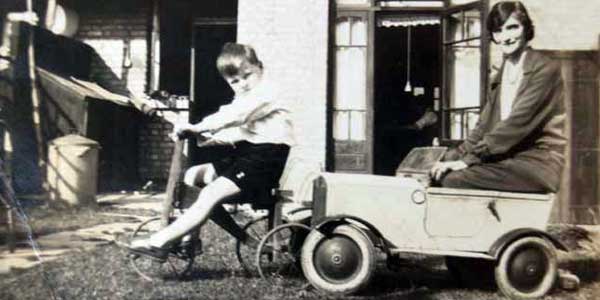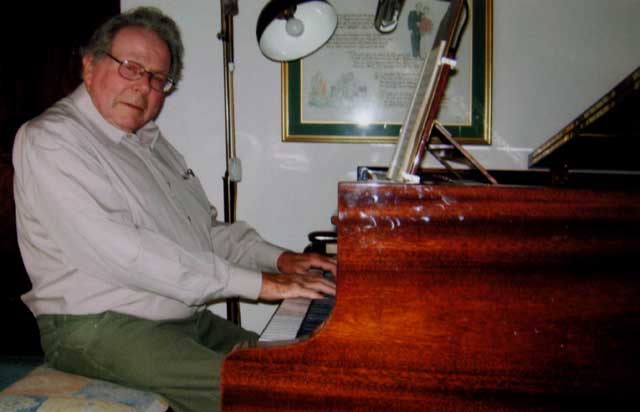During this interview we talk about the difficulty in discussing leisure time pursuits; in separating something you enjoy doing as a job, but also follow for leisure. With Eric’s leisure pursuit in his love of chemistry and in reading, eventually turn into his career. We interview husband and wife, who talk about their lives as children growing up near one and other. Of them meeting and how their leisure pursuits combined in a love of music and dancing.
Podcast: Play in new window | Download (Duration: 28:15 — 32.4MB)

Free Time, Our Stories interview summary
Eric talks about going to night school, three sometimes four nights a week. Eric goes on to talk about the exams he ended up taking. Eric took his exams to get his degree during air raids, it was quite something to get a degree in those days.
The council hearing he passed a degree wrote to Eric and asked if he’d look after group of young men. Eric joined the Chingford Civic defence, job they had was to check radioactivity from atomic bombs and possible chemical attack, in particular for nerve gas. He ended up with six teams of four people. They’d all go out onto Epping Forest and practice, the council had to borrow Land Rovers to equip the group as they didn’t have enough equipment for all the groups to use. They would be covered in a rubber suit and respirator, because if nerve gas got on your skin. Eric goes on to describe how they would cope working with the rubber suit on and what they had to do. Because Doris was involved in some of these exercises there had to be fun, so everyone would have a really enjoyable time undertaken the tasks. Though it was serious staff, Doris made it more social and fun (again this job crosses over to their leisure activities).
Onto leisure, Doris says music is the big hobby in their lives. Sewing and knitting were her other two leisure activities that really occupied her time while Eric was out studying and working. Doris talks about knitting and sewing. She says you have to remember there was no telly and radio would always be on. As a child they would never be sitting still, they’d all be skipping, doing bumps in the gardens and donkey on the garden wall. Bumps are very fast skipping. She doesn’t remember the songs they sang. She took describes one skipping game. She always played games and this occupied them.
Donkey was a game of throwing the ball against a wall and you jump over it, when it bounced if the person behind you didn’t catch the ball they were out. Doris had plenty of aunties as her mother had nine sisters and they were very good to her and there was always other children around. Though they weren’t well off, they lived in an upper-class road.
Eric remembers going with his mother to tennis court where she used to play with a friend. Eric was an only child really and his father was fairly well off. When his father got married his Eric’s grandfather bought the house for them outright. While Doris father was buying their house for 30 shillings a week out of his wage, though it was still unusual at this time to actually buying your house.
Doris tells us about the range of voluntary jobs she’s done over her life, she has always been busy.
They would not arrange to meet they would just see who was out there to play. Their primary school was close to where they lived. It was a very close community. When they went to secondary school it was a bit further away and Eric had to get a bus to his grammar school. They go on to talk about the hierarchy in schools; in the knowledge that everyone wherever they were academically was bound to get a job.
They went to youth club once a week and they went dancing at a proper club. At the youth club it was to play games, mostly physical, but they couldn’t remember what the games were. They talk about courting as a group and how one friend, called Ken, would follow them with his bike and would shine his lamp on them just as they wanted to kiss and cuddle.
Talk about siblings and if they had to look after each other. Than about their parents knowing where they were when they went out to play. Doris didn’t go out much really, mainly playing in her garden, all her siblings and friends would come to Doris’s house to play. Doris didn’t play in the street. Her father had a terrible temper, but if he was in a good mood he’d always want to play. Eric lived in a fairly upper-class area and his friends lived in the area, his best friend Ken and Eric would make models out of Meccano. Area was known as North Chingford and was different to South Chingford. Doris talks about being happy in your own class, of knowing your place. Eric would be happy with his books, while Doris is much more social and needs company.

Doris talks about Eric playing the piano and the church organ and how much pleasure he has given people over the years. This was right from their early days of their courtship, right up till today. Sheet music was popular entertainment.